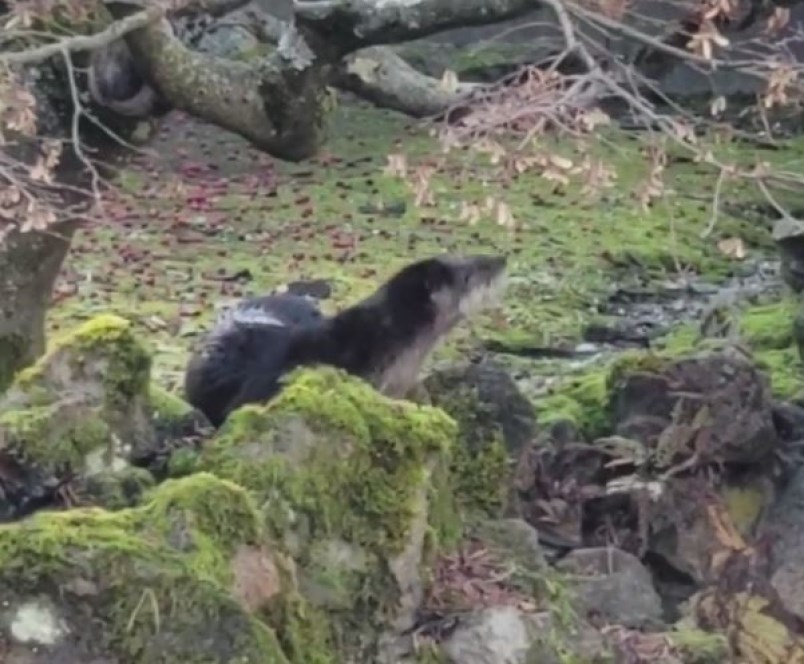Nothing gets attention from news producers and consumers quite like an animal in distress.
It appears we are hard-wired to care for the less fortunate, especially when they have four legs, fins, flippers or wings.
So, it’s no surprise that there’s a hue and cry from the public every time an animal is believed to be in distress – or even if it’s taking out other creatures one by one, like the Chinatown otter has been doing to the koi in the Dr. Sun-Yat Sen Classical Chinese Garden for several days.
The furor prompted a side industry in the sale of buttons, with Metro Vancouverites asked to pick sides, whether they were for #TeamOtter or #TeamKoi.
When the otter couldn’t be stopped or caught, the koi had to be rescued and taken to the Vancouver Aquarium for safekeeping. (As of last report, the remaining two ornamental koi and hundreds of juvenile carp had been saved.)
Closer to home, people next door in Port Moody are concerned about a beaver family living in Suter Brook. It’s likely the beavers migrated from Burrard Inlet and there are now two adults, one kit and one sub-adult living in the urban stream. When a kit died during a relocation last year, a new beaver management plan was introduced that will ensure beavers can co-exist with humans.
The latest update to this is that workers spent hours last Friday putting in a flow-management system that would stabilize the water flow, preventing flooding caused by dam building while also maintaining water levels suitable for beaver habitat.
Finally, right in our own community, is the sad tale of a landlord who tried to drown a young adult female raccoon.
It is believed the landlord of the property had set a trap about a week-and-a-half before and a tenant had assumed the raccoon had been released.
The tenant found the animal, rescued it and kept it warm until the Critter Care Wildlife Society arrived.
The animal ultimately died from its injuries.
The case has now been reported to the BC SPCA, which says it has launched an investigation. Interestingly, an SPCA representative told the NOW that Canadian animal cruelty laws generally don’t apply to wild animals, but because the raccoon had been trapped, it is considered to have been in captivity.
These stories and more show that humans recognize the responsibility we have for vulnerable creatures living along side of us.
While it may seem as if our response to stories of animal behaviour and animal cruelty is overwrought given all the other tragedies of the world, it’s touching nonetheless.
These stories should also spur us to action, such as taking steps to stop climate change or even just locking up our garbage so we don’t attract bears.
It’s easier than you think.



